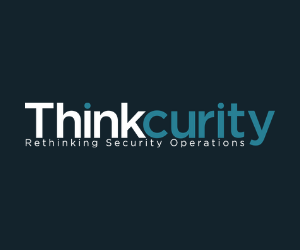As a business owner, you know that having the right team is critical to your success. The wrong employee can cost you time, money, and resources you can't afford to lose. That's why it is so important to take the time to find the right person for your organization. With a clear understanding of what you need, you can narrow down the pool of potential candidates to find the perfect fit. Here are five tips for getting started:
When hiring a physical security professional, it's essential to do your research and understand what to look for. The following are some qualities to consider:
- Experience: The applicant must have experience in the field. They should have a good understanding of the different types of security systems and how to implement them.
- Certifications: The applicant should have the relevant certificates to ensure that they have the knowledge and skills necessary for the job.
- Reputation: Read reviews and check references to make sure that you're hiring someone reliable and trustworthy with your best interests in mind.
- Communication Skills: The candidate should be able to communicate effectively with you and your team. They should understand your needs and explain the security system so that it is easy for you to understand.
2. Define the Job Requirements
Define the job requirements for a position by researching similar roles and compiling a list of essential skills and qualities. Identify the critical tasks, responsibilities, and necessary skills required to hold the position. This will help you create a clear job description, which is essential for attracting qualified applicants.
To do this, you can:
- Research similar roles within other companies
- Include information on company culture and values
- Create a person specification detailing the ideal candidate
- Be as specific as possible when writing the job description
3. Review Resumes and Applications
After you've reviewed resumes and applications, you should have a good idea of which candidates have the skills and experience that you're looking for. The next step is to assess whether or not these applicants are also well-suited for your company.
Here are some questions to ask yourself:
- Will they be a good fit for the company culture?
- Can they work well with others?
- Are they coachable and willing to learn?
- Can they take directions well?
- Do they have the potential to be successful in this role?
4. Conduct Interviews
Conducting an interview is your chance to get to know the candidate on a more personal level and see if they are qualified for the job. This is also an opportunity for the candidate to understand you and your company culture better. Set up one-on-one interviews with each candidate and be prepared for the interview process.
Here are some things to keep in mind during interviews:
What to Ask
- What are the candidate's qualifications?
- What is the candidate's availability?
- What is the candidate's expected pay rate for this position?
How to Evaluate Candidates
- Compare each interviewee against the qualifications you're looking for in an employee.
- Ask your team members or other managers for their input on each candidate.
- Compare each applicant's availability and expected salary to what would work best for your business.
How to Make a Decision
- Consider each candidate's qualifications and how they would fit into your company culture.
- Choose the applicant you believe would be the best fit for the position and extend an offer.
- If you're unsure about any of the candidates, interview them a second time.
5. Making the Offer and Onboarding New Employees
This is where salary negotiation comes in. It's essential to have a budget in mind for the position you're hiring for and to be prepared to negotiate within that budget. The goal is to agree on a fair salary for both the company and the employee. Once compensation has been agreed upon, it's time to extend the offer formally. The proposal should include the salary, benefits, start date, and other important information about the position.
After the offer has been accepted, it's time to onboard the new employee. They should be given a tour of the office, introduced to their co-workers, complete any necessary training for their position, and provided with information about the company culture and values. By onboarding new employees properly, you can set them up for success in their new roles.
Conclusion
There is no one-size-fits-all solution when it comes to hiring the right talent. The best approach depends on the specific needs of your business. If you're looking to ensure your company's safety, it's best to partner with a physical security company that specializes in pre-employment screening.




